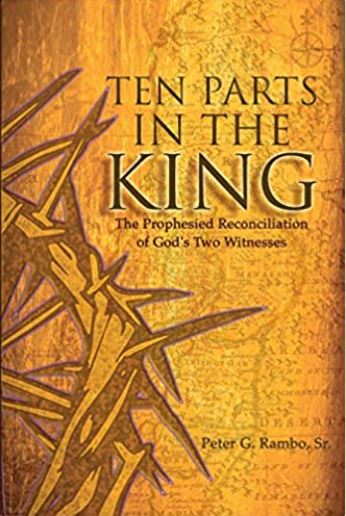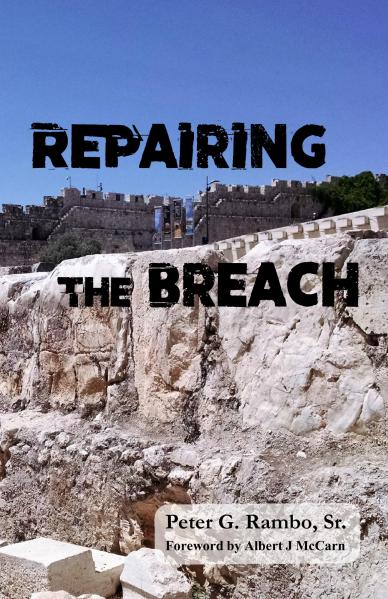Recently, we have seen that Abba Yahweh’s ordinances are everlasting. The astute Bible student will counter with, “Really? What about sacrifices?”
Okay, let’s talk about them!
First, you need to know that I believe the whole Bible is true and that just because we can’t explain or do not understand something does not mean we should redefine, dodge or alter Scripture. Sacrifice is a challenging topic that makes Christendom, and not a few Messianics, squeamish, but Scripture gives some very clear pointers that we can look at and must take into account. In order to come to a correct understanding of the subject, we need to be sure to take all of Scripture into account. In fact, the very verse discussed in the previously linked post says,
The sum of Your word is truth, And every one of Your righteous ordinances is everlasting.
By assembling all the pieces, we can come to a proper perspective of sacrifice and how it, as an ordinance, is everlasting.
What was the purpose of animal sacrifice? Did it cleanse the sinner of sin? The author of Hebrews is clear on the matter,
For the Law, since it has only a shadow of the good things to come and not the very [a]form of things, [b]can never, by the same sacrifices which they offer continually year by year, make perfect those who draw near. 2 Otherwise, would they not have ceased to be offered, because the worshipers, having once been cleansed, would no longer have had consciousness of sins? 3 But in [c]those sacrifices there is a reminder of sins year by year. 4 For it is impossible for the blood of bulls and goats to take away sins. Hebrews 10:1-4
But he also, in this same passage, gives us one of the reasons for sacrifice. It is a reminder of sinfulness, or another way, it is a reminder of the cost/price of sin. Ultimately, it cost Messiah Yeshua an atoning death on our behalf.
In the context of Leviticus and the larger Tanach, ‘sacrifice’ served several purposes.
- It pointed forward as a foreshadow, by faith, to the coming One Perfect Sacrifice,
- It cost the sinner a spotless/unblemished (valuable) lamb or goat from his/her stock,
- It provided food for the Levitical Priesthood,
- It provided food for celebrants at the prescribed feasts, and
- It became a pleasing aroma both to our Father and in the Temple. (Who doesn’t like standing next to the grill?)
I think Christendom would exactly agree with the Hebrews passage and the points I just listed. In the sense that Messiah Yeshua is the once for all sacrifice, and therefore, the everlasting fulfillment of this ordinance, we would also exactly agree. But, here is where our understanding begins to diverge.
There are multiple passages and examples of sacrifice, both in future prophecy and in post-resurrection Acts. If ‘the sum of Your word is truth,’ then how do we account for those and not violate the simple meaning of the text?
Frankly, it is not that difficult, but it requires us to get out of the theological box of the last 1700 years and explore some other options. Scripture is explicit and abundantly clear! Over and over there are very direct and specific promises to Israel, BOTH houses, that Yahweh will absolutely regather His children from the corners of the earth and rule over them IN the land, from Yerushlayim/Zion! This is absolutely undeniable, though many traditions and doctrines of men try to spiritualize this or explain these prophecies away.
Among those prophecies are the Ezekiel chapters detailing the Third Temple (40-48) and specifically, chapters 43 and 44 detailing the temple worship that will involve ‘the blood and the fat.’ Zechariah 14:21, another passage that is clearly unfulfilled, speaks of sacrifice. There are other allusions, but these are the clearest prophecies.
What are we to do with them?
In an earlier article, reblogged on this site, the subject of sacrifices in the Millennial Kingdom was dealt with. I want to add to it as we answer the question of ‘sacrifices as an everlasting ordinance.’ (I do recommend reading it for more background.)
Recall that Rav Shaul (the Apostle Paul) offered sacrifice in the temple some 20 years after Messiah’s resurrection. Was that sin? Was it ‘Jewish custom,’ as some try to attribute it? Or, was it obedience both to James the Just, and to the Torah? In fact, Hebrews, the book everyone likes to use to declare Yeshua ‘did away with all sacrifice’ actually states that, at the time of writing, 30+ years after Yeshua’s resurrection,
Now if He were on earth, He would not be a priest at all, since there are those who offer the gifts according to the Law;
The word ‘are’ means ‘present tense,’ at the time of the writing of Hebrews.
So, understanding that sacrifices do not take away sin, but have multiple other functions, and understanding that Luke records James instructing Paul to take Nazarite vows and offer sacrifices, and prophecy clearly indicates a probable future sacrifice in the Third Temple, how might we understand its future function?
I think ‘sacrifice’ will serve the same function as it did in the Tanach! Watch:
- It will point backward as a shadow, by faith, of the One Perfect Sacrifice,
- It will cost the bearer a spotless/unblemished (something valuable) lamb or goat from his/her stock,
- It will provide food for the Priesthood,
- It will provide food for celebrants at the prescribed feasts, and
- It will be a pleasing aroma both to our Father and in the Temple. (Who doesn’t like standing next to the grill?)
Let’s break each of these out in a little detail.
1. Looking back at our Atoning Sacrifice is no different than Israel’s constant looking forward. It is not the sacrifice that atoned, but it reminded the people of the great price that atonement cost. In fact, I would argue that in our desensitized first world society, we have no real understanding of what our sin really cost the Messiah. We need a strong visual reminder! That in no way detracts from Him, rather it deepens our understanding of the price He paid.
2. We often discount the cost of sin to the sinner in the sacrificial system. Our family has milk goats. It would not be a cheap thing to take the best of my very small herd every time I sinned. Either, I’d get over the sin habit or I’d be out of goats in a hurry! To put it another way, my earthly father often needed to apply a spanking to my hindparts when I was growing up. The spanking did not ‘atone’ for my sin, but it did cost me some physical discomfort. Basically, the sacrificial system imposes a ‘cost’ on the sinner.
3. The Millennial Kingdom will have two groups of priests serving in the temple. Levitical and direct appointments. (See Ez. 44 and Is. 66:16-21) Like the priesthood of old, they will need to eat. Simple stuff.
4. Not all sacrifices were sin related, and for that matter, not all sacrifices were blood related. Bottom-line, if we are celebrating the feasts in the Millennial Kingdom as multiple passages clearly teach, then food will be a necessity! We might equate this with celebrating an anniversary with a steak on the grill. (The steak illustration is not to diminish the understanding of the value of a sacrifice, but it does demonstrate that we eat meat now and forget that something had to die before being put on our plate!)
5. Who doesn’t like the wonderful aroma of cooking food? A few days ago, we had some special company at our house for lunch. I made an excellent aromatic braised oxtail stew. The whole house took on the aroma as it slowly cooked in the crockpot. It would have made a vegan lick their lips. Just as we enjoyed the aroma, I think our King does, too. (See Genesis 18; Judges 6, 13; Matthew 26; John 21, etc..)
Speaking of ‘vegan,’ here is a direct quote from some comments I made on another blog that are a fine summation to this post,
You mention Hebrews and the ‘once for all sacrifice.’ Yeshua was the atoning sacrifice and the Pesach lamb, but there are plenty of other offerings and sacrifices in the temple that can easily continue. Further, just as you celebrate an anniversary or birthday, there can be sacrifices that look back as much as those before Him looked forward. You find sacrifice so distasteful, but you’ll drop a steak on the grill for a special occasion and think nothing about it. Remember, if there is some form of restored priesthood (Ez. 44 and Isaiah 66:21) in the Millennial kingdom (Rev. 20:1-7), there will need to be some way to feed them, a secondary purpose for the sacrificial system. And, if the sacrifice is a reminder that looks back to THE sacrifice, I don’t see the problem. It denies nothing. It celebrates something! (And provides the meat for the party!) If you are truly against all sacrifice, you should consider vegan!
Yep. Sacrifice is an ordinance. It is an everlasting ordinance. We may not understand the details and may need to wait until our High Priest gives clearer teaching at the inauguration of the Third Temple, but we best not discount it or try to ‘rewrite’ Scripture to fit our theological box.
I pray this study has challenged/encouraged you. May it be of help as you study to give and answer!
Shalom!




















































































































Hmmm!!! Food for thought. (thoughtful examination of the Scriptures )(all of them)
LikeLike
This fits in with what James has been blogging about in his Morning Meditations: what we as Gentiles would look like in our role as “Israelite” believers in Messiah next to Jews, equal yet with differing obligations. http://mymorningmeditations.com/2014/01/03/the-consequences-of-gentile-identity-in-messiah/ Slowly, a body of work by some amazing bloggers (yourself included) is pointing the way for all of us stumbling around. You and Zach make great voices in counterpoint to the HR folks attempting to be Jews and leave behind Messiah to their destruction.
LikeLike
Thank you so much for your comments and encouragement.
I like/read James, though I’m sure we do not totally agree on what responsibility the ‘Israelite’ has to Torah. One body/one Law, but, like you allude, without the tradition. (Tradition isn’t bad, I’m just not bound by it.)
Shalom and welcome!! Please hang out and participate!
LikeLike
Ya, I am not totally on board with his thought process, and find some of his angst baffling. But I do believe he is moving in the right direction, along with many other of us. I am looking forward to more of your posts, thanks!
LikeLike
Also Jeremiah 33:18 is a good proof text for forever. And another thing I often say to folks is how when we are in dispersion it has never happened. They couldn’t sacrifice in Assyria or Babylon during dispersion….so, without protocols of the torah are not told to either. All conditions per torah must be in place. Another interesting verse is Zephaniah 1:7.
LikeLike
Pingback: Has the Application of the Law Changed? | natsab
Pingback: Say NOTHING!! | natsab
Really enjoyed this and plan to repost this on my own site!
LikeLike
Feel free free to repost whatever you want as long as you give a link!! Happy to share and glad you have enjoyed!!
Shalom!
LikeLike
Pingback: The Lion of the Tribe of Jew.. D’uh!! | natsab
Pingback: Whatever you do, do NOT do this…. | natsab
Pingback: Is Yom Kippur for Christians? | natsab
Pingback: ‘Done away with,’ or merely suspended? | natsab